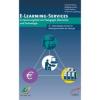A NEW ARTICLE: How to achieve a high quality in learning
In the recently published edition of the
Journal for educatonal Technology and Society I published a paper on quality development in which I argue that it is not only "external" quality strategies (like eg. quality criteria) we need for educational quality but also the competencies to use them,. to adapt them and to develop our own quality objectives for teaching and learning situations. The article is taking a different view on how to develop quality like the mainstream today by stating that quality development in education is a matter of negotiation between the learners and the educatinalists and that this negotiation can only be fruitful if boith "parties" are equiped with knowledge, attitudes and skills which allow them to achieve high quality learning outcomes.
Here the Link to the article online
Here the abstract:
The article suggests that stakeholders involved in quality development need a specific competence, called
quality literacy, in order to successfully improve learning processes. We introduce and describe quality
literacy as a set of competencies that are needed for professional quality development. Quality literacy
emphasises the importance of professionalism as a necessary component for quality development, in
addition to structural quality management models. We argue that quality development is a co-production
between learners and their learning environment. This means that the educational process can only be
influenced and optimised through participation and not steered externally. Quality strategies cannot,
therefore, guarantee a high quality of learning processes but rather aim at professionalisation of the
educational process and stakeholders. This article suggests participation and negotiation between
educational stakeholders (clients and providers) as a main condition for quality development. In addition,
we present a quality model that conceptualises quality as a potential that can only be achieved through
interaction.
Journal for educatonal Technology and Society I published a paper on quality development in which I argue that it is not only "external" quality strategies (like eg. quality criteria) we need for educational quality but also the competencies to use them,. to adapt them and to develop our own quality objectives for teaching and learning situations. The article is taking a different view on how to develop quality like the mainstream today by stating that quality development in education is a matter of negotiation between the learners and the educatinalists and that this negotiation can only be fruitful if boith "parties" are equiped with knowledge, attitudes and skills which allow them to achieve high quality learning outcomes.
Here the Link to the article online
Here the abstract:
The article suggests that stakeholders involved in quality development need a specific competence, called
quality literacy, in order to successfully improve learning processes. We introduce and describe quality
literacy as a set of competencies that are needed for professional quality development. Quality literacy
emphasises the importance of professionalism as a necessary component for quality development, in
addition to structural quality management models. We argue that quality development is a co-production
between learners and their learning environment. This means that the educational process can only be
influenced and optimised through participation and not steered externally. Quality strategies cannot,
therefore, guarantee a high quality of learning processes but rather aim at professionalisation of the
educational process and stakeholders. This article suggests participation and negotiation between
educational stakeholders (clients and providers) as a main condition for quality development. In addition,
we present a quality model that conceptualises quality as a potential that can only be achieved through
interaction.
uehlers - 5. Jun, 07:19


Trackback URL:
https://lernqualitaet.twoday.net/stories/3803435/modTrackback